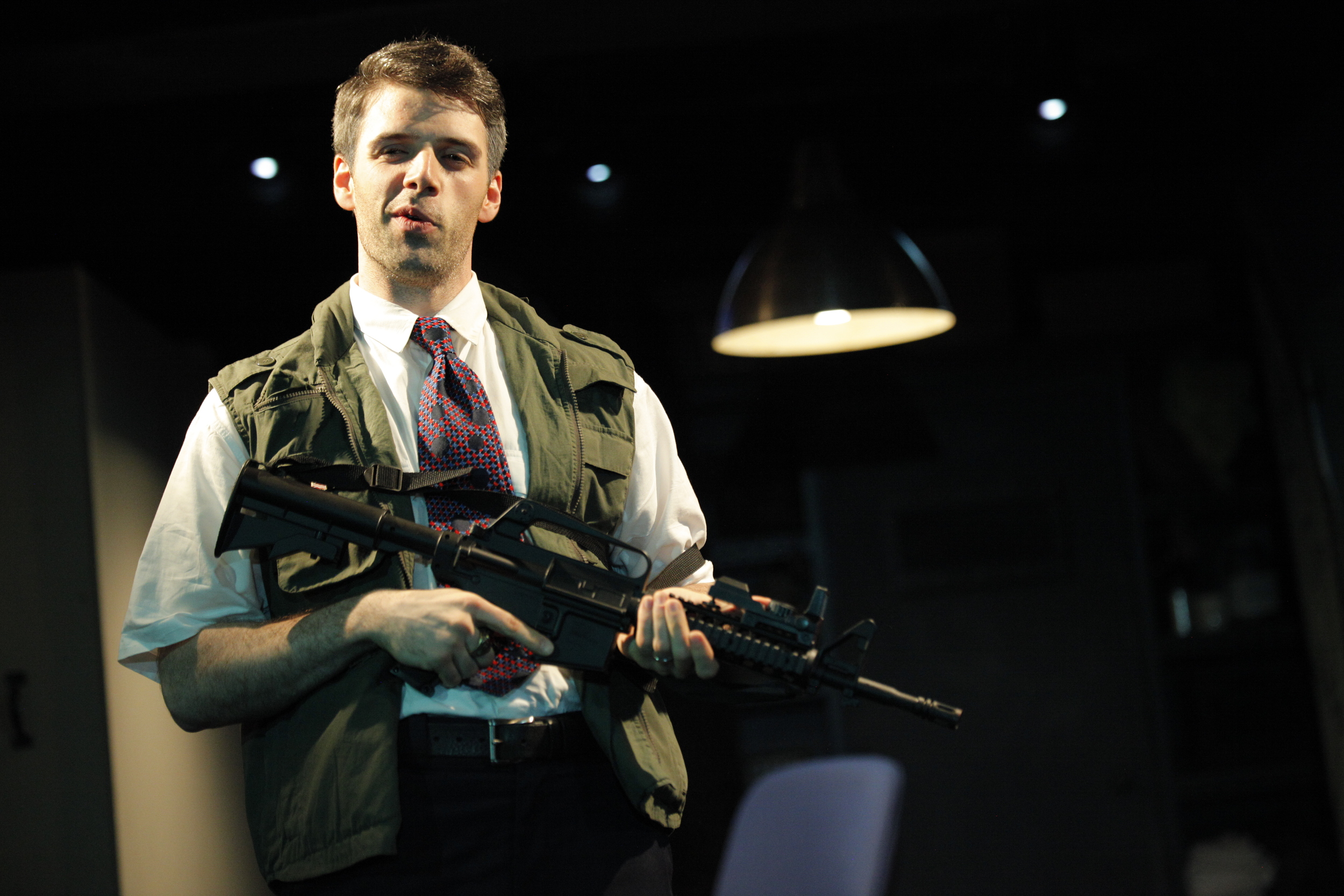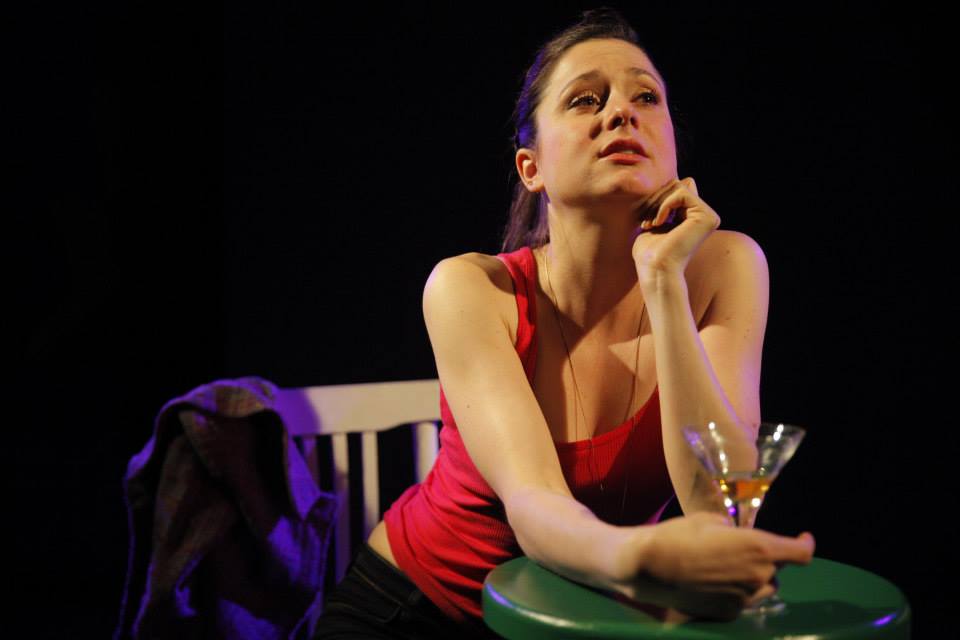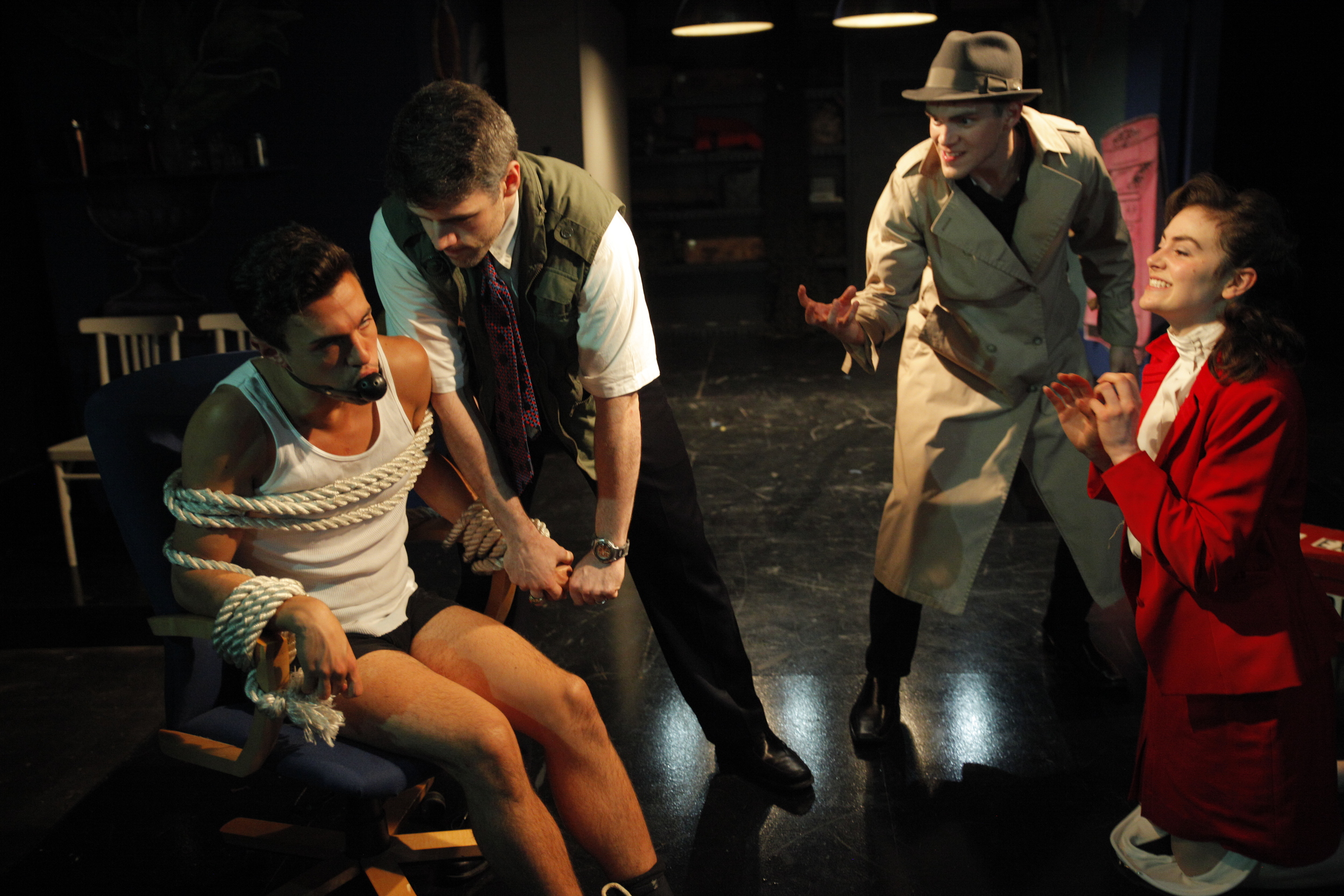This year marks the 40th anniversary of the Yale Summer Cabaret, a theatrical entity separate from Yale Cabaret (or “term time Cabaret”), which began life in 1974.

In tribute to the four decades of its existence, the current Yale Summer Cabaret, led by Artistic Directors Jessica Holt and Luke Harlan, with Managing Director Gretchen Wright and Associate Managing Director Sooyoung Hwang, will be staging plays by living American authors, beginning with Christopher Durang, who was one of the founding members of the Summer Cabaret 40 years ago. Today, of course, he’s celebrated for plays such as his most recent, the Tony Award-winning “Best Play” of 2013, Vanya and Sonia and Masha and Spike (which Summer Cab wanted to mount this year but Hartford Stage got there first), but, once upon a time, he was a YSD student working in the Summer Cabaret.
The decision to feature contemporary American playwrights follows nicely on last year’s program, which was a kind of syllabus of world theater, from the neoclassicism of Molière through naturalism, symbolism, and ending with the absurdist and pointed work of contemporary British playwright Caryl Churchill. The note reached at the end of last year’s Summer Cab, with Churchill’s Drunk Enough to Say I Love You looking askance at American dominance since WWII, sets up nicely this year’s program of “voices at the forefront of American theater,” works that encapsulate complex perspectives on our cultural heritage, our place in the world, our self-image, and our values, as a nation.

The shows will, like last year, open sequentially and play for about two weeks each. At midsummer, a break will give the company time to reconfigure the space so that, unlike last year, the seating arrangements will not remain fixed for the entire summer but will alter midway. This, Holt and Harlan feel, gives audiences the best of both worlds: the stage-like setup of last year’s Summer Cab, for two shows, and the more amorphous arrangements typical of term-time Cab for the next two shows. Capping off the two months of contemporary full-length plays will be a four-day program of very recent short plays, all by YSD alums, including the three playwrights currently featured at this year’s Carlotta Festival, Hansol Jung, Mary Laws, Kate Tarker.
The Program
First up, in June, is Christopher Durang’s 2009 absurdist comedy Why Torture is Wrong and the People Who Love Them which Holt, who will direct, describes as a “wildly funny, wacky, and zany” comedy about such laughing matters as torture, terrorism, gun violence, domestic dysfunction, male domination, and the fraught nature of interracial or cross-cultural marriage in America. In Holt’s view, the play is “grappling with what it means to be American,” and so, ultimately, fits the Summer program better than Vanya and Sonia and Masha and Spike would have.
We meet Felicity (Ariana Venturi), a young woman who has apparently married the unsettling Zamir (James Custati-Moyer) while drunk, so that she seems to be meeting him when we do, as she has no previous recollection of him. Then, of course, we go home to meet the folks: father (Aaron Bartz) and mother (Maura Hooper), with support from Aubie Merrylees as the seedy Reverend Mike, Celeste Arias as Hildegarde, dad’s “colleague,” and Andrew Burnap providing the cartoonish voice over. The play takes on most of the things the news keeps Americans fretting about, as stories of violence and the threat of violence are as American as television. From 5 June to 15 June
Next, still in June, Luke Harlan will direct Erin Courtney’s A Map of Virtue (2012), a New England premiere. Harlan calls the play a “journey into darkness” that mixes genres—romantic comedy, horror story, mystery, docu-drama—to keep the audience guessing. Narrated by a bird statue, the play tweaks expectations at every turn, but is also structurally symmetrical, with 6 scenes leading to a major event and 6 scenes following that key moment. With a cast of 7, the play mainly focuses on Sarah and Nate, a stranger named Mark and a house in the woods. An “exploration of evil,” the play, Holt says, is also “charming, brilliant, and ebulliently written,” and addresses the effect on relationships of traumatic events. From 19 June to 29 June
After 11 days off, including the 4th of July weekend, the Summer Cabaret returns with Jackie Sibblies Drury’s We Are Proud to Present a Presentation about the Herero of Namibia, formerly known as Southwest Africa, from the German Sudwestafrika, between the Years 1884-1915. Director Jessica Holt calls the play, which played at SoHo Rep in 2012, directed by Eric Ting of the Long Wharf, a “meta-theatrical inquiry into cultural anthropology” as we watch a theatrical troupe in the process of creating a play about the “first genocide of the twentieth century.” Germany, during the inclusive years in the play’s title, controlled what was then called Deutsch-Südwestafrika, which is today the nation of Namibia, and during that time found cause to destroy the Herero tribe. With a ruthless efficiency that seems the prototype for genocide against Jews and Poles in WWII, German soldiers were put in the position of executioners of a native population. But the only record of what took place can be found in the soldiers’ letters home. In Drury’s play, the actors’ difficulties with imagining and inhabiting the roles dictated by the extreme situations—particularly with gaps in knowledge and motivation—leads to obvious analogies to violence against native and slave populations in the U.S. Holt sees the play within the play as an ingenious device to bring the audience into the situation through the comic and seemingly improvised interactions of rehearsal, inviting the audience to consider the implications of their own presence in the room with the actors. From 11 July to 26 July
The final full-length play is Will Eno’s Middletown, the author’s breakthrough play. Eno has been called, by Charles Isherwood, “the Samuel Beckett of the Jon Stewart generation,” and, while I don’t know that many see themselves as defined generationally by watching Stewart, the notion of unsettling existentialism rubbing up against the self-aware ironies of the American media does strike a chord. Eno’s The Realistic Joneses, currently on Broadway, debuted at the Yale Rep in 2012 and was one of the best new plays to show up there in recent memory. Middletown dates from 2010 and is a kind of Our Town for an edgier era. In director Luke Harlan’s view the play asks, as does Our Town for an earlier time, “what does it mean to be alive right now?” Without romanticizing or dismissing everyday lives, but with real “humor and fear,” Harlan says, Eno’s play looks at normal people living normal lives in an “Anytown U.S.A.” but lets them say things no one says aloud. With a cast of 10 actors playing 20 characters, the show will be an opportunity to sample the excellent ensemble work of YSD and Cabaret shows. From 31 July to 10 August
Finally, the Summer Cabaret closes with Summer Shorts, a four-day festival of new short plays by six playwrights “whose work was first nurtured and developed at the Yale School of Drama.” Divided into Series A and Series B, there will be at least three plays in each Series (or evening), and on the last two days, Saturday and Sunday, August 16th and 17th, all the plays will be staged in two sequences, at 4 p.m. and 8 p.m., respectively, both evenings. The line-up of plays will be previewed here during the Summer Cab’s July interim. This part of the program should be very interesting, seeing what can be done in a short compass by playwrights that Holt and Harlan regard as the future of theater. From 14 August to 17 August
The Team
Jessica Holt, rising third year directing candidate, and Luke Harlan, rising second year directing candidate, met at the meet-and-greet last spring when Harlan visited Yale as a prospective YSD student. They hit it off then, with their belief in new plays that had been fostered by their work in, respectively, the San Francisco and New York theater scenes. By the time Harlan was midway through his first year, the two had begun to plan a proposal for the Summer Cabaret, where Holt put in time working last summer. Their mission statement focused on the virtues of new and challenging works that had enjoyed successful and highly regarded first or, at most, second runs.
Very aware that they are presenting the 40th anniversary season of the beloved experiment that is the Summer Cabaret, the Co-Artistic Directors wanted to provide a provocative line-up of plays that tell stories. Both directed plays in last year’s term-time Cabaret: Holt directed Edward Bond’s darkly comic dystopian play Have I None, a U.S. premiere, and Harlan reached back to The Brothers Size, an early play by YSD alum Tarell Alvin McCraney that gave Yale Cabaret 46 a strong finish. Holt’s and Harlan’s choices showed the commitment to current plays and youngish playwrights demonstrated by the Summer Cab line-up.
For their Managing Director, Holt and Harlan asked around “and heard and observed good things” about Gretchen Wright, whose background in choreography may afford participation beyond the key role of keeping the Cabaret running smoothly. As regular patrons of the Summer Cabaret know, the summer is a different animal from the term-time Cabaret, becoming a welcome oasis in a college town whose median age ratchets up considerably in the summer months. Other entertainments of the “afterhours” variety may be added later.
With its first offering, the 40th anniversary Summer Cabaret will touch base with its origins before taking us on a journey that will demonstrate some of the contemporary values of theater—bending genres, looking at the problem of historical enactment, re-imagining the “domestic quotidian,” and demonstrating the resources of short but powerful recent pieces.

The key terms for the 40th Summer Cabaret, devised by Holt and Harlan, are Community. Excellence. Imagination. Innovation. Investigation. Wonder. Providing excellent theater to the New Haven community through innovative works that investigate our ways of life with a sense of imaginative wonder, the Summer Cabaret will up and running in three and a half weeks.
Prepare to be challenged.
The Yale Summer Cabaret 2014
Voices at the Forefront of American Theater
Photographs by Christopher Ash
Passes and single tickets are available online at summercabaret.org, by phone at (203) 432-1567, by email at summer.cabaret@yale.edu, and in person at the Yale Summer Cabaret box office (217 Park Street, New Haven, Connecticut 06511).












